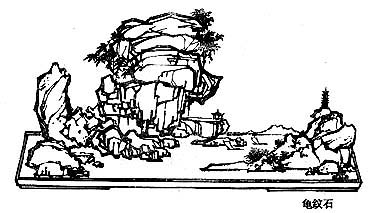論
語
Lun Yu 
 – The Analects of Confucius
– The Analects of Confucius
The Master discusses with his disciples and unveil his preoccupations with society. Tr. Legge (en), Lau (en) and Couvreur (fr).
                                       | |||||||||||||||||||||||||||||||||||||||||||
| |||||||||||||||||||||||||||||||||||||||||||
 |  |
Lunyu VII. 15. (165)
Confucius did not approve of a son opposing his father.
1. Yen Yû said, "Is our Master for the ruler of Wei?" Tsze-kung said, "Oh! I will ask him."
2. He went in accordingly, and said, "What sort of men were Po-î and Shû-ch'i?" "They were ancient worthies," said the Master. "Did they have any repinings because of their course?" The Master again replied, "They sought to act virtuously, and they did so; what was there for them to repine about?" On this, Tsze-kung went out and said, "Our Master is not for him."
Legge VII.14.
Jan Yu said, 'Is the Master on the side of the Lord of Wei?' Tzu- kung said, 'Well, I shall put the question to him.'
He went in and said, 'What sort of men were Po Yiand Shu Ch'i?'
'They were excellent men of old.'
'Did they have any complaints?'
'They sought benevolence and got it. So why should they have any complaints?'
When Tzu-kung came out, he said, 'The Master is not on his side.'
Lau [7:15]
Jen Iou dit : « Notre Maître est-il pour le prince de Wei1 ? » Tzeu koung répondit : « Bien ; je le lui demanderai. » Entrant chez Confucius, il lui dit : « Que faut-il penser de Pe i et de Chou ts'i ? » Confucius répondit : « C'étaient deux sages de l'Antiquité. » Tzeu koung reprit : « Eprouvèrent-ils des regrets ? » Confucius répondit : « Ils aspiraient à la vertu d'humanité, et ont atteint leur but. Pourquoi auraient-ils éprouvé des regrets ? » Tzeu koung, quittant Confucius, retourna auprès de Jen lou, et lui dit : « Notre Maître n'est pas pour le prince Tche. » Ling, prince de Wei, chassa de ses États son fils K'ouai kouei, qui devait hériter du titre de prince. Le prince Ling étant mort, ses sujets mirent à sa place Tche, fils de K'ouai kouei. Mais les habitants de la principauté de Tsin ramenèrent K'ouai kouei dans la principauté de Wei ; et Tche entra en lutte avec son père. Confucius était alors dans la principauté de Wei. Les habitants croyaient que, K'ouai kouei ayant encouru la disgrâce de son père, Tche, petit-fils légitime du prince Ling, devait lui succéder. Jen Iou eut des doutes et interrogea à ce sujet. (Tchou Hsi)Pe i et Chou ts'i étaient deux fils du prince de Kou tchou (pays actuellement compris dans le Tcheu li). Leur père en mourant légua son titre de prince à Chou ts'i (qui était son troisième fils). Quand il fut mort, Chou ts'i voulut céder le titre de prince à Pe i, son frère aîné. Pe i rappela la volonté de son père ; et prenant la fuite, se retira dans un autre pays. Chou ts'i n'accepta pas non plus l'héritage, et s'enfuit également. Les habitants établirent héritier le deuxième des fils du prince défunt. plus tard, le roi Ou (fondateur de la dynastie des Tcheou), ayant chassé Tcheou (dernier empereur de la dynastie des Chang-ln), Pe i et Chou ts'i montèrent à cheval, et allèrent en toute hâte reprocher au roi Ou d'avoir éteint la dynastie des Chang-ln. Considérant comme une honte de manger le grain récolté dans l'empire des Tcheou, ils se retirèrent sur le mont Cheou iang, où ils moururent de faim. (Tchou Hsi)Tzeu koung, quittant Confucius, dit à Jen Iou : « Puisque notre Maître approuve la conduite des deux frères Pe i et Chou ts'i, qui se cédèrent l'un à l'autre la dignité de prince, certainement il désapprouve le prince de Wei qui dispute à son père cette même dignité. Évidemment il n'est pas pour le prince de Wei. » (Tchou Hsi)
Couvreur VII.14.
Zi-gong menjawab, "Baiklah aku hendak menanyainya ?"
b. Ia masuk ruangan, lalu bertanya, "Bagaimanakan Bai-yi dan Shu-qi itu ?"
Nabi menjawab, "Mereka ialah orang-oang yang Bijaksana pada jaman dahulu."
"Menyesalkah mereka akan tindakannya ?"
"Mereka mencari Cinta Kasih dan telah mendapatkan Cinta Kasih. Mengapa menyesal ?"
Zi-gong keluar dan berkata, "Guru tidak mau".

The Analects of Confucius – Lun Yu VII. 15. (165) – Chinese on/off – Français/English
Alias the Lunyu, the Lun Yü, the Analects, les Entretiens du maître avec ses disciples.
The Book of Odes, The Analects, Great Learning, Doctrine of the Mean, Three-characters book, The Book of Changes, The Way and its Power, 300 Tang Poems, The Art of War, Thirty-Six Strategies
Welcome, help, notes, introduction, table.
Index – Contact – Top
